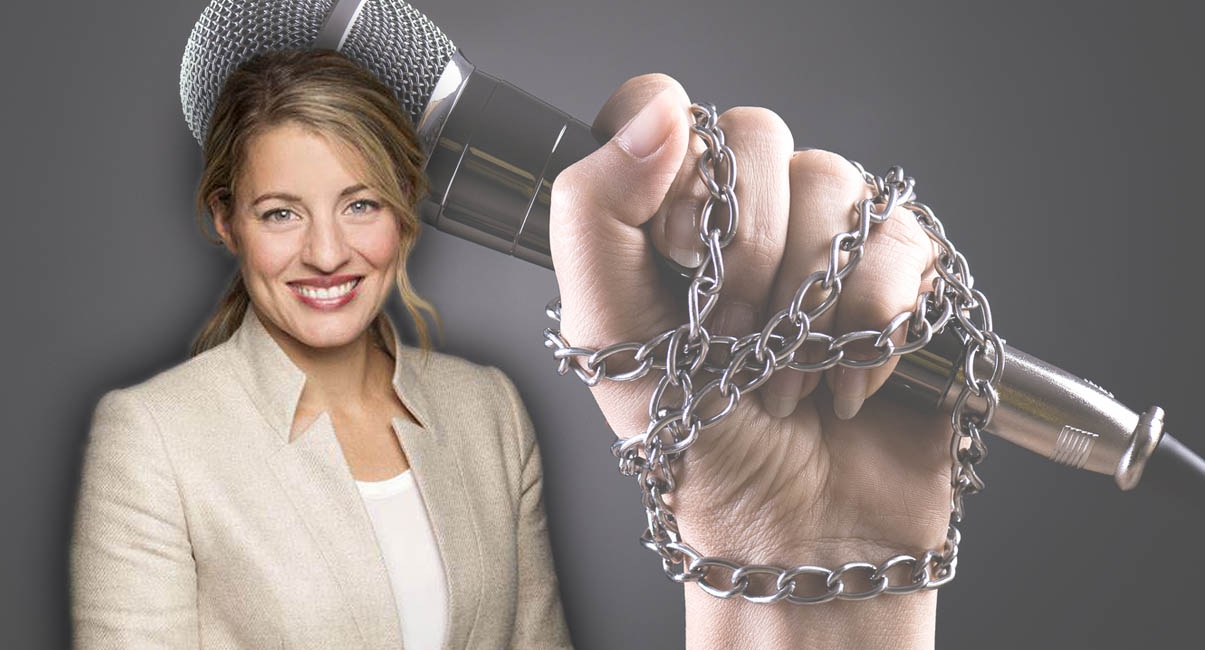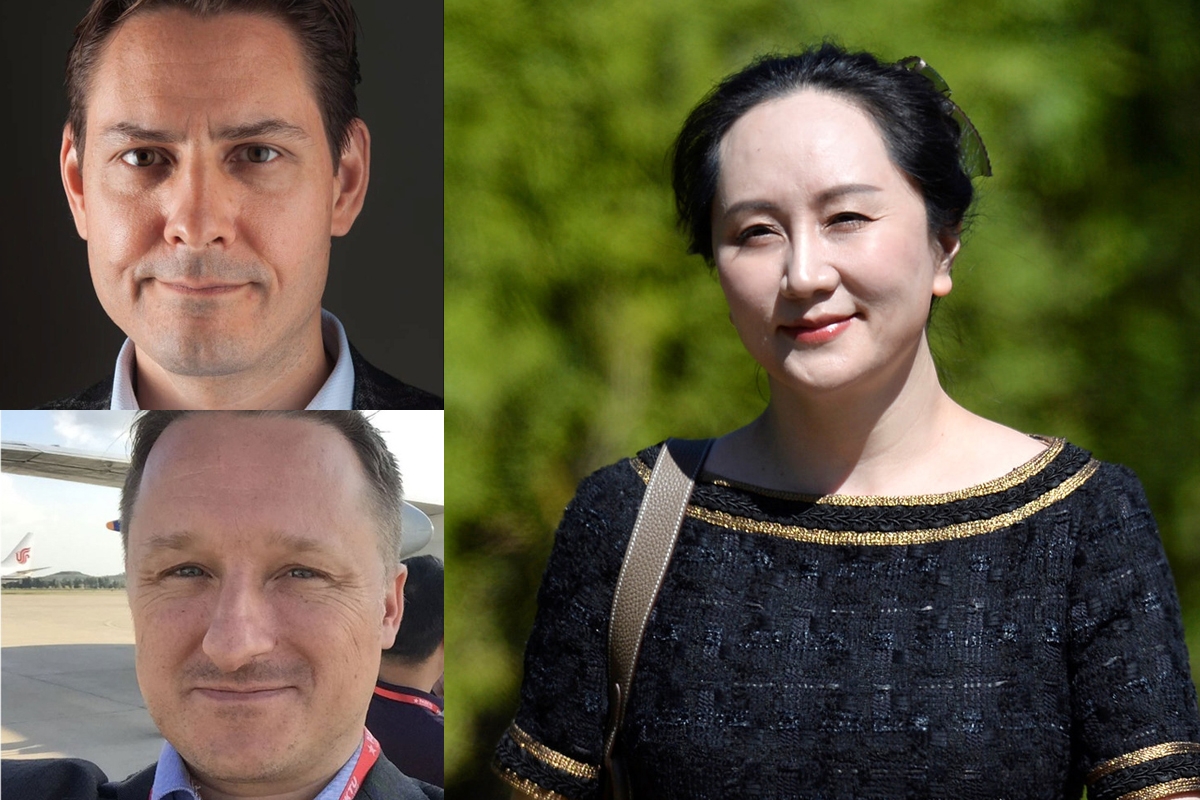
Minister Joly’s mandate to regulate the media is anti-democratic
With the availability of global media, now more than ever, people do not have to rely on a singular government narrative to find the truth.
In a democracy, a free press and freedom of expression mean it is the prerogative of an individual to read or say want they want and not be beholden to what the government wants us to read or think. During the Second World War, Canadians were told that sending Japanese Canadians to internment camps was a needed measure. There was no questioning this government narrative and no ability to read or access perspectives from other countries. That sort of control would be impossible in today's open media society.
In her mandate letter from Prime Minister Trudeau, Foreign Affairs Minister Melanie Joly was instructed to regulate the internet, specifically to combat Russian disinformation. This is a disturbing move by a Liberal government that has already shown authoritarian tendencies. Giving the government the power to censor the internet is not a one-time pass and sets troubling precedence that can never be pulled back.
At the 2019 Parliamentary Press Dinner, the prime minister joked that the media is forgiving towards his government because of the $600 million in funding directed at them by his government. The pun was really about the CBC’s cozy relationship with the Trudeau Liberals. Their chief political correspondent Rosemary Barton often comes across as a shameless apologist for the government and has even taken and posted friendly selfies with Justin Trudeau.
During the 2019 election, the CBC and Barton sued the Conservative Party of Canada for using clips from CBC broadcasts in an election ad. The suit laid bare the bias of the national broadcaster and the stunningly incompetent judgment of its management, who used taxpayer money to fund the lawsuit. The CBC lost the case, and that incident, along with a collapse in its nightly news ratings and multiple other complaints about the decline in the quality of its reporting over the past six years, has led to increasing calls for defunding or reform of the taxpayer-funded broadcaster.
In their most recent canard, the CBC actually published a list of what the government deemed to be “acceptable media” in Canada. Tellingly, the CBC has disabled the ability to comment on most of its YouTube videos and all its Facebook posts. The broadcaster says that the public can instead comment on its webpage, which is moderated by a third party, a substantial overreach in free expression, especially given that hate speech, as defined by Canadian law, must be determined by a court, not a CBC employee. The CBC does this to eliminate perspectives that differ too widely from their reporting.
This is not the only attack on free media. The government has barred large conservative media organizations like Rebel News from the parliamentary press gallery. Andrew Lawton of the True North Centre for Public Policy was banned from covering Justin Trudeau during the 2019 federal election and at the 2019 Global Conference for Media Freedom in London. Chrystia Freeland’s staff ran the conference and tried to stop Lawton and a Rebel journalist from entering.
The Rebel and True North might be right-wing and distasteful to many, but that is beside the point in a democratic society, and it is a disturbing trend. The Rebel may be partisan and repulsive to so-called progressives, but the principle of a free press is far more important than their ‘feelings.’ Rebel News has 1.56 million subscribers on YouTube. Compare this to the nationally funded CBCs with three million subscribers, and it shows a substantial appetite for a different point of view.
Back to Melanie Joly’s mandate letter, which is disturbing for several reasons. The first is that it is an obvious case of mission creep. It is dangerous that Global Affairs Canada wants to control what content Canadians can view in Canada, even if it is “Russian disinformation.” It’s not the government’s job to tell citizens what news they can or can’t read or watch from a country we are not at war with.
Russian disinformation is a hashtag thrown around quite liberally and often without much evidence. It is not uncommon for a third-party news agency to be called “Russian disinformation” without citation for simply reporting a different perspective.
In February 2022, the CBC shamelessly pulled the Russian instigation card during the trucker occupation in Ottawa. In an interview with the Minister of Public Safety, Marco Mendicino, reporter Nil Koksal suggested that Russia instigated the trucker convoy without referencing an iota of evidence. During the interview, Koksal said to Minister Mendicino, “I do ask that because, you know, given Canada’s support of Ukraine in this current crisis with Russia, I don’t know if it’s farfetched to ask, but there is concern that Russian actors could be continuing to fuel things as this protest grows, or perhaps even instigating it from the outside.”
In their clarification, in the description of the same video, the CBC defends her asking the question rather than apologizing for it by suggesting that protesting citizens were manipulated by foreign influences without providing any evidence to back that claim. Of course, the comments on this video are disabled. We should not be surprised if this baseless reporting tact is used on media in Canada by the CBC or by government officials.
Another reason Minister Joly’s mandate letter is problematic is that it shows the government can cut off access to foreign media in the name of politics, completely circumventing the right to freedom of information, freedom of expression, and freedom of the press.
The current Liberal government may not abuse this power, but what if another government decides to in the future and cuts off all Arabic or Israeli media in the name of public information security? What about the Indian press, which has been highly critical of the Trudeau administration since his 2018 visit to India? With the proposed mandate, the government can simply label it disinformation and ban it.
The Trudeau government wants Canadians to use “trusted media.” That list of trusted media is curated by the government itself and is spearheaded by a national broadcasting corporation that has shown itself to be highly partisan.
Citizens of liberal democracies must have unfettered access to foreign disinformation or the propaganda of other states; the risk of having a government that can push its cultivated narrative on the people through a powerful state-funded news establishment is troubling and dangerous.
By giving Minister Joly the power to regulate what we see and read, we are creating a bigger monster than we can comprehend.
Photo: iStock












